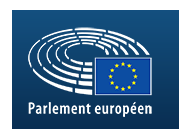Document type : Article published in Vie Publique
Author: Vie Publique Editorial
Preview: Animal welfare is an integral part of the EU's new strategy for healthier and more sustainable food. As part of this strategy, the EU is to carry out a major overhaul of its animal welfare legislation by the end of 2023. It also plans to introduce a shared European label.
On 13 July 2021, the European Parliament Research Service (EPRS) published a study of legislation relating to animal welfare on farms and of the prospects for the establishment of an EU label for farming conditions.
- the revision of the current legislation by the end of 2023 (the Commission opened a consultation on the draft revision of its animal welfare regulations on 6 July);
- the creation of a European label or labelling system to increase transparency over the conditions under which animals are farmed, transported and slaughtered.
Incomplete legislation
According to the EPRS report, structural changes in production systems have occurred for some animal species (laying hens, calves and pigs). But mutilation and overcrowded and stressful living conditions are still the norm in some EU States.
The authors of the report call for more precise rules to enable a more consistent interpretation by Member States and, above all, by farmers. They suggest that regulations should be specific to each species, in particular for dairy cows, breeding hens and broilers.
Last, they stress the need to improve the coherence of animal welfare legislation, in particular through the Common Agricultural Policy (CAP).
A European label?
The EPRS report has identified 24 animal welfare labelling schemes in the EU. These labelling schemes are concentrated in a few States. They concern animal welfare on the farm but not always during transport or at the time of slaughter. Fresh, frozen or processed meat is the most labelled product, as are dairy products and eggs. Fish, on the other hand, is rarely covered by a label.
All these labels are voluntary and depend on the good will of private actors (producer groups, NGOs). Government-run labelling schemes are rare: Denmark was the first country to establish its own animal welfare label, followed by Germany and Italy.
At this stage, a voluntary approach to the introduction of a European animal welfare label seems to the writers of the report to be the policy option that is most likely to be supported by the Member States. Economic operators, farmers and national authorities fear a possible impact on economic stability and loss of competitiveness in the agricultural sector if labelling were to be mandated.






